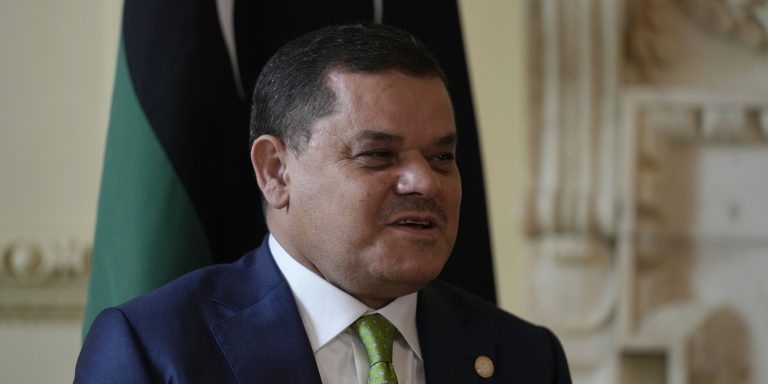INTELBRIEF
April 26, 2022
IntelBrief: Libya Slides Back into Chaos Amid Spiking Oil Prices

Bottom Line up Front
- Libya appears on the brink of renewed civil conflict, as rival factions in eastern and western Libya fail to reconcile.
- No agreement has been reached on rescheduled presidential and parliamentary elections, which the United Nations assesses are keys to political reconciliation.
- The infighting has caused temporary interruptions to Libya’s oil exports, as rival factions have sought control of some oil fields and installations.
- Interruptions of Libyan oil production render the country unable to help restore balance in a global oil market rattled by Russia’s invasion of Ukraine.
As of late April, a 2020 United Nations-led roadmap to try to end the decade of conflict between factions based in eastern and western Libya appears to be unraveling. The floundering political process has reduced the prospects for stabilizing Libya, more than ten years after the 2011 overthrow of longtime dictator Muammar al-Qadhafi. The UN plan was based on holding presidential elections scheduled for December 24, 2021; however, the elections were postponed by disagreements among the major factions over election ground rules. The dispute escalated in February when the eastern Libya-based parliament asserted that the term of prime minister Abdul Hamid Dbeibeh, seated in Tripoli, had expired on the December 24 presidential election date. In March, the parliament confirmed a new prime minister, Fathi Bashagha, and a new cabinet and, in addition, endorsed a process to work toward holding national elections by May 2023. Dbeibeh has called the naming of a new government illegitimate and vows to remain in his post until national elections are held. Armed supporters have rallied to his side, and he has refused to allow Bashagha to enter Tripoli to take office. Dbeibah has proposed new election dates prior to the June 2022 expiration of the UN-backed reconciliation accord between the eastern and western factions. That election date favors his faction politically, because eastern Libyan leaders require time to build support among tribal groups and other factions in western Libya.
As the divisions between eastern and western Libyan leaders harden, signs of a potential return to armed conflict are growing with each day. Earlier this month, Khalifah Haftar, the commander of the Libyan National Army (LNA) and a key eastern Libyan political leader, withdrew his representatives from the joint military committee that was set up to de-conflict rival military movements. The committee has included five members from the Tripoli-based National Unity Government headed by Dbeibah and five representatives of Haftar's forces. Some activists in Libya accused Haftar of simultaneously ordering the closure of the coastal road linking Libya’s east and west, although there are no clear indications that the road is closed. A return to combat between contending factions would almost certainly hinder efforts to provide relief to the Libyan people who have been subjected to nearly constant fighting since Qadhafi’s overthrow. The United Nations estimates that at least 800,000 Libyans—more than 10% of the population—require humanitarian aid. Should the ceasefire break down, tensions will also increase among the various outside backers of the rival Libyan groups; Haftar and his eastern Libya allies are backed by Russia, neighboring Egypt, and the United Arab Emirates, whereas Tripoli-based Libyan leaders are supported primarily by Turkey. Qatar, which intervened militarily to help the rebellion against Qadhafi, reportedly has supplied some financial assistance to the Turkish effort. As of April, Russia might have redeployed Wagner Group mercenaries from Libya to Ukraine in order to reinforce its faltering war effort there, possibly reducing Haftar’s combat capabilities.
U.S. officials are monitoring Libya closely, not only for the humanitarian impacts, potential spillover effects into other North African countries, and the possibility of destabilizing refugee flows to Europe, but also for the potential to further disrupt global energy markets. Oil prices have increased significantly since Russia’s invasion of Ukraine, as U.S. and European sanctions have reduced Russia’s oil exportation. U.S. officials have failed in their efforts to convince various oil producers, particularly Saudi Arabia and the United Arab Emirates, to increase production as a step toward stabilizing oil prices. The dynamics in Libya have also contributed to the spike in oil prices, as rival factions seek to control Libya’s national assets and revenue sources. In March, Libya’s oil exports fell below 1 million barrels per day (mbd), from the usual baseline of 1.2 mbd. The drop was attributed to incursions by pro-Haftar armed tribal groups that shut down Libya’s al-Feel and Sharara oil fields; the latter, the country’s largest, produces 450,000 barrels per day. Both fields reopened after several days, following negotiations led by tribal leaders.
In mid-April, Libya’s national oil company said that it was forced to shut down Sharara again due to armed action by tribal groups protesting Dbeibah’s refusal to yield power. The company declared a force majeure—a legal move allowing it to free itself from contractual supply obligations due to factors beyond its control. On April 23, Libyan officials confirmed that an oil refinery at Zawiya, in western Libya, had been damaged by clashes among armed groups there. The infighting also largely rules out Libya from reaching and implementing the decisions necessary to increase exports of natural gas, the price of which has similarly spiked as a result of the Ukraine invasion. Libya is potentially able to supply more natural gas to Europe, which currently gets about 40% of its supply from Russia, given Libya’s strong gas production and close proximity to the continent. However, expanding natural gas exports requires investments that Libya cannot attract if it is on the verge of renewed civil conflict. In addition to the global impact on energy markets, a political solution is first and foremost critical domestically for the Libyan people, after more than a decade of instability. UN, U.S., European, and Arab mediators continue to try to work with all Libyan leaders to ensure a solution in the common interest.